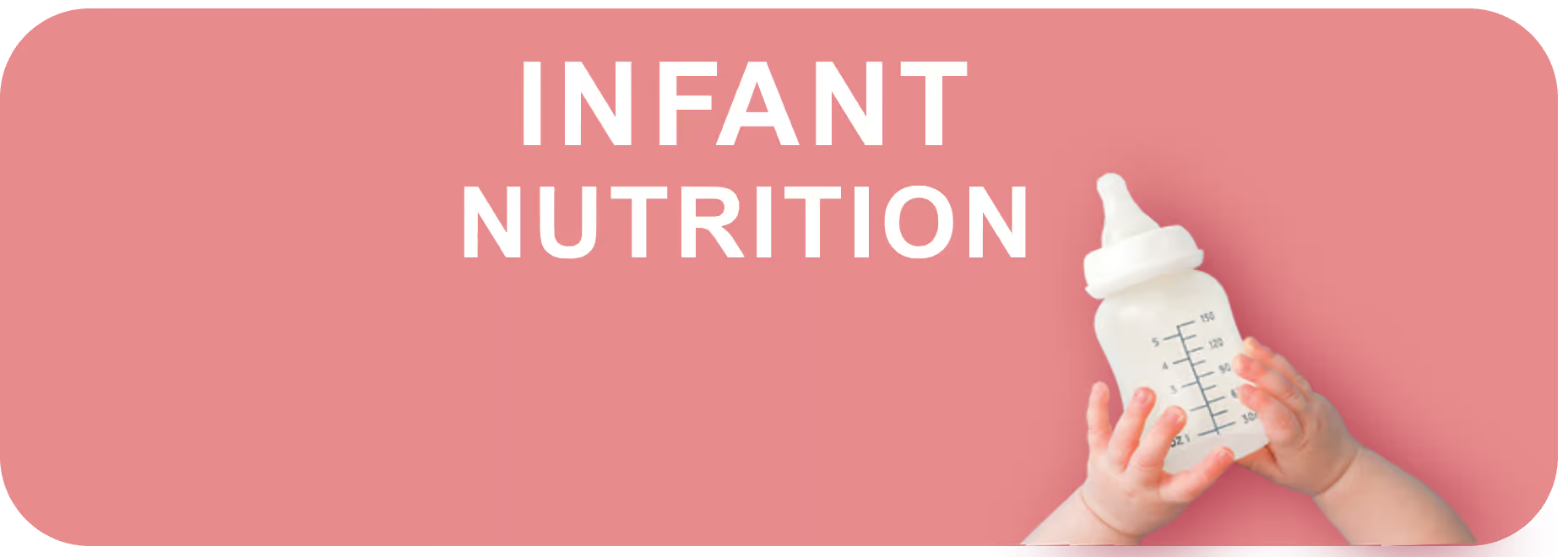The organic food trend has arrived in infant nutrition

The global organic market has grown rapidly over the last 20 years, from 15 to 112 billion euros [1] . Consumption of products produced by organic farming is on the increase, reflecting the public’s environmental awareness and their search for premium products.
Expectations are no different in terms of infant nutrition, and the organic label helps reassure parents.
In this article, you can find out key statistics relating to the organic market, commitments and rules regarding organic products, and our vision for this segment of the infant nutrition market.
The organic market
What does ORGANIC actually mean?
Organic farming is a production and processing method that respects the environment, biodiversity and animal welfare.
Throughout the European Union, from 1 January 2022, Regulation (EC) No 2018/848 will specify all the regulations that need to be followed in relation to the production, processing, distribution, import, control and labelling of organic products [2] . Managed at the European level, the principles of organic farming are based on:
- responsible use of energy
- respect for the environment, plant health and animal welfare
- the use of organic processes based on sustainable operation, with no GMOs or animal cloning
A product that is labelled ‘organic’ must contain at least 95% organic products[3] . Organic infant formula is made from milk and vegetable oils that are produced by organic farming. The other ingredients (minerals, vitamins, fibre, etc.) cannot be certified as organic.
There are two official labels that allow consumers to identify products as organic:
- the AB logo, which is the French label created by the Ministry of Agriculture and Food
- the Eurofeuille logo, a European label that identifies products which comply with organic farming specifications.
All the stakeholders in the organic sector are monitored by approved third-party certifying bodies[12].
The crisis is not affecting the organic sector
According to the Bio Agency[1] , by 2019 the global organic market had reached a figure of almost 112 billion euros, of which 48 billion euros came from the European market. In fact, 7 of the top 10 organic markets in the world are located in Europe.
Globally, the United States is the organic market leader, with 40% market share, followed by Germany with 11%, and France with 11% market share[1] .
The consumption of organic farming products continues to grow in Europe. In fact, European consumers spent €37.5 billion in 2017, an increase of over 11% on the previous year, and more than double the amount spent in 2010[4] .
Organic: a trend in infant nutrition
The organic infant formula market in Europe
Products that come from organic farming are entering all segments of children’s nutrition, from infant formulae to foods for a varied diet. More and more stakeholders and brands in this market want to switch to ranges that are 100% organic. [5]
As regards organic infant formulae, Europe is one of the largest markets. In 2019, global sales of infant formulae increased to over 40 billion dollars, 12.8% of which were organic. [6]
While sales of conventional formulae remain fairly steady, products that are certified as organic demonstrate strong growth.
Why is there such enthusiasm for organic products?
Organic is synonymous with reassurance
In general, people who buy organic products are mainly families with young children [1] . Labels have also become a factor in their choices. In France, for 32% of parents, the AB label is a criterion for their choice of infant nutrition[7] . In this market segment, the use of preservatives, colourants, sweeteners, and artificial flavourings is prohibited[11] .
Infant nutrition products are among the safest on the market due to their high quality, governed by the strictest of regulations (Delegated Regulation (EU) 2016/127, Regulation (EC) No 1881/2006). Although infant products are already tightly controlled, organic certification may align with parents’ ethical and ecological principles, and it provides additional reassurance for some parents.
Lactalis Nutrition: a stakeholder in organic infant products
With over 120 years of experience in infant nutrition and a presence in more than 68 countries, Lactalis Nutrition offers a broad which have been specially developed to meet the nutritional needs of babies from birth onwards. As regards infant formulae for daily nutrition, we also offer formulae that are certified as organic by ECOCERT.
Lactalis Nutrition is committed to the nutrition and health of babies, but also to respecting the environment in order to achieve sustainable development. Our teams are working to optimise the format and composition of our packaging, allowing us to design packaging that is increasingly environmentally friendly.
Today, organic food is a growing trend, combining recipes that are tailored to the needs of babies with the guarantee of production methods that respect the environment, animal welfare and biodiversity. Lactalis Nutrition is there for you, supporting you in developing your high quality organic infant nutrition ranges.
SOURCES:
[1] L’Agriculture bio dans le monde [Organic farming around the world] – 2020 – Agence Bio.
[2] Regulation (EU) 2018/848 of the European Parliament and of the Council of 30 May 2018 on organic production and labelling of organic products and repealing Council Regulation (EC) No 834/2007
[3] Le bio en quelques mots [“Organic” in a nutshell]. Agence Bio.
[4] L’Agriculture Biologique en Europe en 2019 [Organic Agriculture in Europe in 2019]. (2020). Cluster bio
[5] Nutrition infantile : du « vert » et du « sans » dans les assiettes des enfants [Infant nutrition: putting “green” and “free from” foods on children’s plates. (2019, 31 October). lsa-conso.fr
[6] Global Data, 2020
[7] YouGov, based on an Omnibus study, 2019
[8] Commission Directive 2006/141/EC of 22 December 2006 on infant formulae
[9] Delegated Regulation (EU) No 2016/127: https://eur-lex.europa.eu/legal-content/FR/TXT/PDF/?uri=CELEX:32016R0127&from=FR
[10] Regulation (EC) No 1881/2006: https://eur-lex.europa.eu/LexUriServ/LexUriServ.do?uri=OJ:L:2006:364:0005:0024:FR:PDF
[11] https://nutrimarketing.eu/wp-content/uploads/2020/11/109-Nutrition-Infantile.pdf
[12] https://www.economie.gouv.fr/particuliers/comprendre-labels-bios “Quels sont les labels bio ? [What do different organic labels mean?]”










